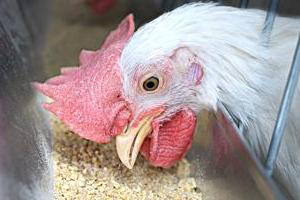U-turn considered on European PAP poultry feed ban

The European Union is considering lifting a ban on processed animal proteins (PAPs) to ease the cost of protein used to make pig and poultry feed.
The change would come at a time of heightened consumer concern about food safety in Europe following the horsemeat scandal, Reuters reports. Stricter safety rules on PAPs, that include intestine, bones, blood and feather, would be imposed when the ban was lifted to prevent, for example, the “cannibalism” of pig feed being given to pigs.
But the cost to industry of implementing the new rules as well as consumer wariness means it is not clear how much the protein would be used. “We are currently discussing with member states the potential re-authorisation of processed animal proteins in feed for poultry and pigs from 2014,” said a spokesman for Tonio Borg, the EU’s Health and Consumer Policy Commissioner.
The by-products from pig and poultry slaughter were banned in 2000 as a precaution after the BSE outbreak and the number of cases in the EU fell from 2,167 cases in 2001 to 45 cases in 2009 according to the World Health Organisation.
In Europe, PAPs can currently be used in pet food. As of June this year they will also be allowed in EU fish feed.The next planned step would be to allow them in poultry and pig feed. This would bring Europe back in line with many other countries, including the United States, China, Thailand, Australia where there were no major reported outbreaks of BSE.












